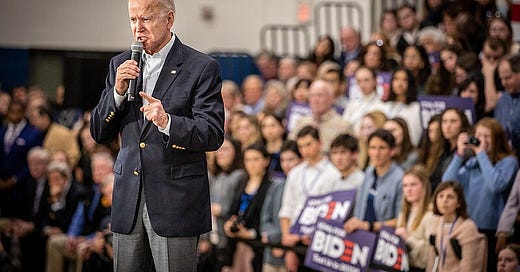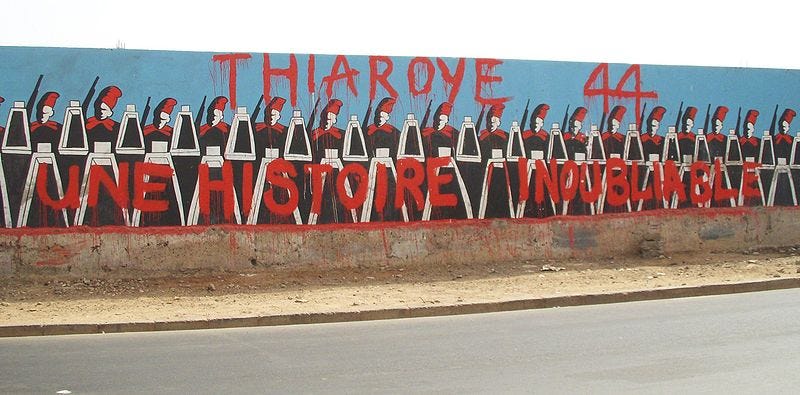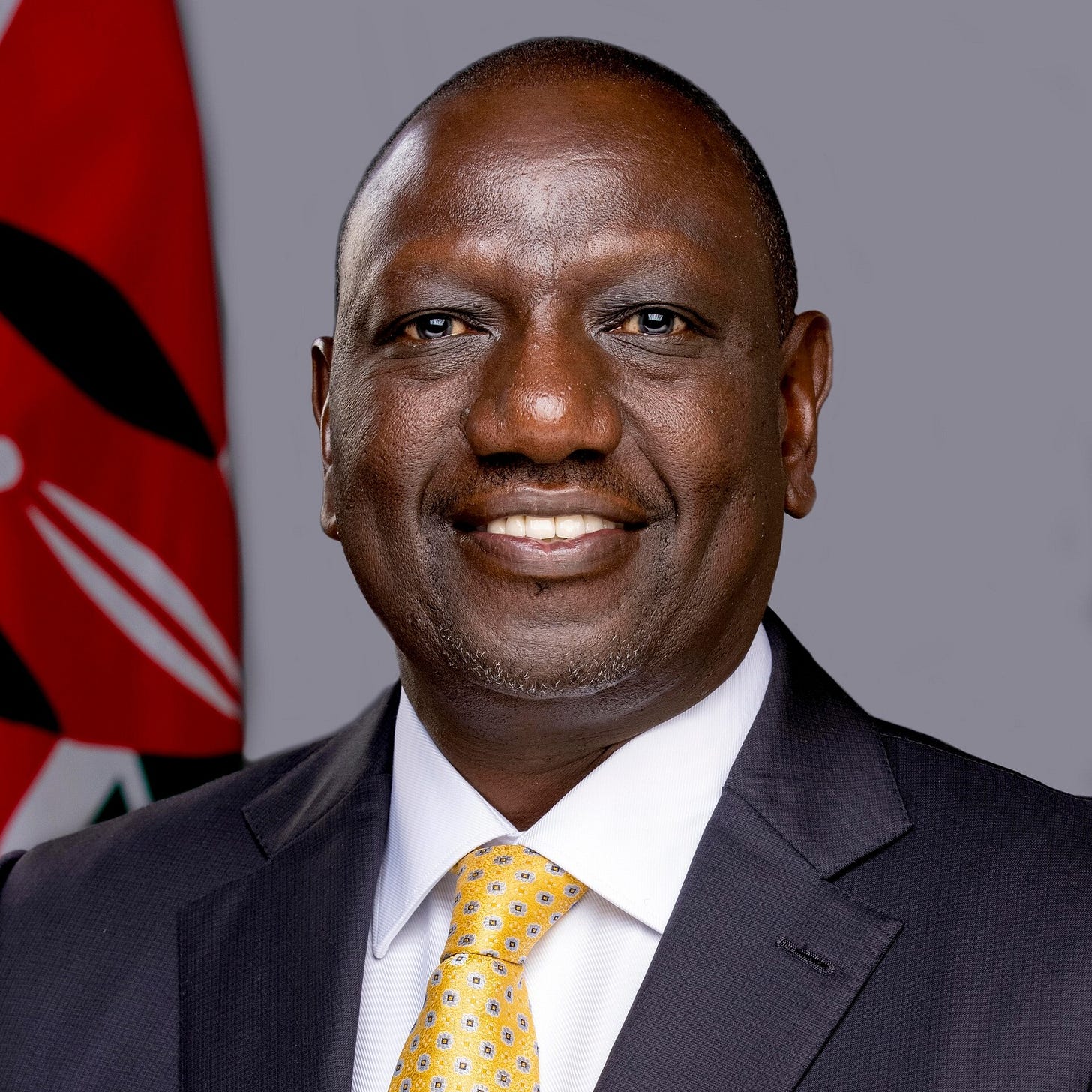🔅 Biden in Africa: Too Little, Too Late?
Senegal to France: Pack Up Your Bags & Why an Evangelical President Faces Backlash from Clergy
Good Morning from Mauritius!
Joe Biden's African Trip: Too Little, Too Late?
President Biden has finally made it to sub-Saharan Africa for the first and only time during his presidency. But his trip has been overshadowed by a controversial decision he made right before boarding Air Force One – pardoning his son Hunter of tax and gun convictions.
It seems that even when Biden tries to prioritize Africa, family drama steals the spotlight. Some might say this demonstrates how low on the totem pole Africa really is for this administration, despite Biden's lofty promises.
But let's try focus on the positives, shall we? Biden's first stop was Cape Verde, an island nation off the coast of Africa, where he had a quick chat with the prime minister during a refueling stop. Nothing says "you're important to me" like squeezing in a meeting between flights!
Next up: Angola, a country with a complicated history of colonialism, civil war, and Cold War proxy battles. Now, it's a rising economic power thanks to oil and diamonds, making it a key battleground for US-China competition (hence the focus).
China has been making significant inroads in the neighbouring Democratic Republic of Congo in recent years. The resource-rich African nation has become a key focus for China's Belt and Road Initiative, with Chinese companies investing heavily in infrastructure projects such as roads, railways, and mines.
With China continuing to expand its influence in Africa, Biden was in Angola highlighting a shiny new $1 billion rail corridor that’s meant to connect West to East Africa as proof that the US is serious about investing in Africa's future. He'll also tout $6.9 billion in deals between American and Angolan businesses.
But with President-elect Trump waiting in the wings, known for his less-than-flattering views on Africa, the longevity of Biden's commitments is anything but certain.
In the end, Biden's last-minute trip to Africa feels a bit like a student cramming the night before a final exam. He had four years to make Africa a priority, but he waited until the very end of his presidency to make the journey.
The unfortunate timing of his son's pardon has only reinforced the sense that Africa is an afterthought for this administration.
Senegal to France: Thanks for the Thiaroye Apology, Now Pack Up Your Troops
President Bassirou Diomaye Faye has a message for France: Merci for finally admitting your role in the 1944 Thiaroye massacre, but it's time to say au revoir to your military bases in Senegal.
In an interview at the presidential palace, Faye dropped this bombshell, arguing that hosting French troops is simply incompatible with being a truly independent and sovereign nation.
Faye, who swept into office in March promising to assert Senegal's autonomy, made it clear this isn't a total break-up with France, à la other West African nations who have kicked out French forces and cozied up to Russia instead.
As he pointed out, China is Senegal's biggest trade and investment partner, and you don't see any Chinese military bases around, do you?
The Thiaroye Tragedy
Central to the dialogue has been the commemoration of the Thiaroye massacre, a dark stain on French-Senegalese history. In November 1944, around 1,600 African soldiers who had fought for France in WWII were sent back to a camp near Dakar.
When they protested over delayed pay, French forces opened fire, killing at least 35 (though historians say the real toll was likely much higher).
Fast forward to last week, and Faye says French President Emmanuel Macron sent him a letter unambiguously acknowledging Thiaroye as a "massacre" and apologizing for not being able to attend the 80th anniversary commemoration.
A "great step," says Faye, but he's considering pushing for a full-on apology and reparations. As he put it, "To recognize that a massacre has been committed must obviously have the effect of making amends."
Senegal's call for the closure of French military bases comes amid a broader shift in West and Central Africa, where several francophone countries, including Mali, Burkina Faso, and Niger, have been taken over by military juntas that have expelled French forces and turned to Russia for security aid instead. Chad last week suddenly ended a defence co-operation agreement with France that could force the withdrawal of 1,000 French soldiers from the country, marking the latest blow to President Emmanuel Macron’s disintegrating strategy to reset ties with Africa.
Faye's call for the closure of French military bases and Macron's acknowledgment of the atrocity signal a potential turning point in the complex and often fraught relationship between the two nations.
Why an Evangelical President Faces Backlash from Clergy and Congregations
Ah, the irony! Kenya's President William Ruto, who rode the wave of Christian support all the way to victory two years ago, now finds himself in hot water with the very clergy and congregations that once hailed him as a savior.
During his campaign, Ruto's evangelical supporters dubbed him "David," likening him to the biblical shepherd boy who became king.
But fast forward to today, and Ruto has a new nickname: "Zakayo," Swahili for Zacchaeus, the wealthy and unpopular tax collector from the Bible. It seems the president's tax hikes and unfulfilled promises have left a bitter taste in the mouths of many Kenyans, including the clergy.
In a country where over 80% of the population identifies as Christian, the faith economy is a force to be reckoned with. Churches have long enjoyed the benefits of cozy relationships with politicians, but the recent anti-tax protests led by young "Gen Zs" have forced them to reevaluate their stance.
From the pulpits, clergy members now openly criticize Ruto and his policies. Rev. Tony Kiama of the River of God Church went viral for calling out the government's "evil purpose," while Catholic bishops accused Ruto's administration of perpetuating a "culture of lies."
Indeed, the Catholic Church, with its 10 million followers in Kenya, carries significant weight, and when bishops recently rejected Ruto's $40,000 donation, citing "ethical concerns," it sent a clear message…
This move has reminded Kenyans of the Church's historical role in pushing for multi-party democracy in the 1990s, and it has garnered support from other denominations and even Muslim clerics.
And while Ruto and his allies initially hit back at the criticisms, analysts warn that a direct confrontation with the churches could spell disaster for his re-election prospects. And so, in a surprising turn of recent events, Ruto's close ally, MP Oscar Sudi, took to social media to apologize to Catholic bishops on behalf of the government. The president himself has softened his stance, expressing his willingness to engage further with the clergy.
It's a harsh lesson in political reality for a leader who once basked in the glow of religious fervor. But as the saying goes, "pride comes before a fall," and Ruto might just find himself humbled by the very faith that propelled him to power.
Food for Thought
“It is not where you are, but what you do there, that matters.”
— Rwandan Proverb







